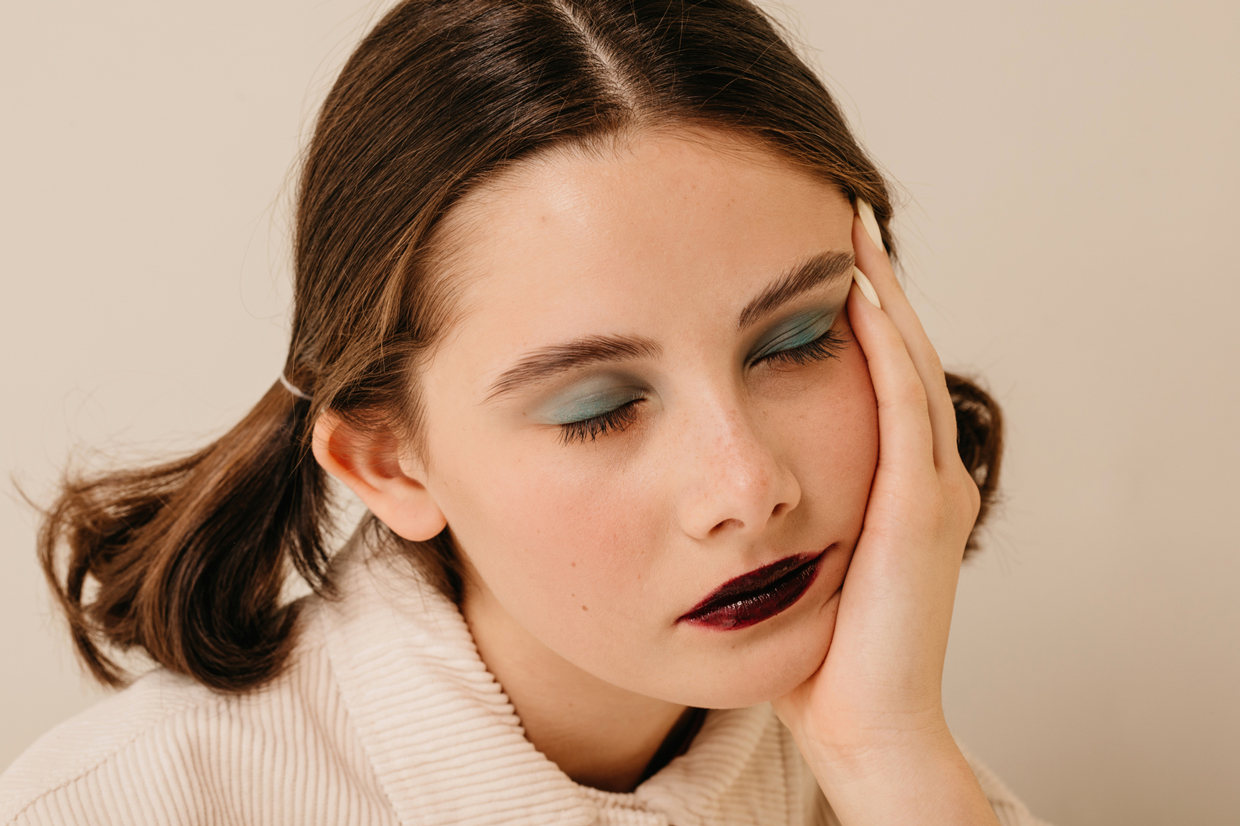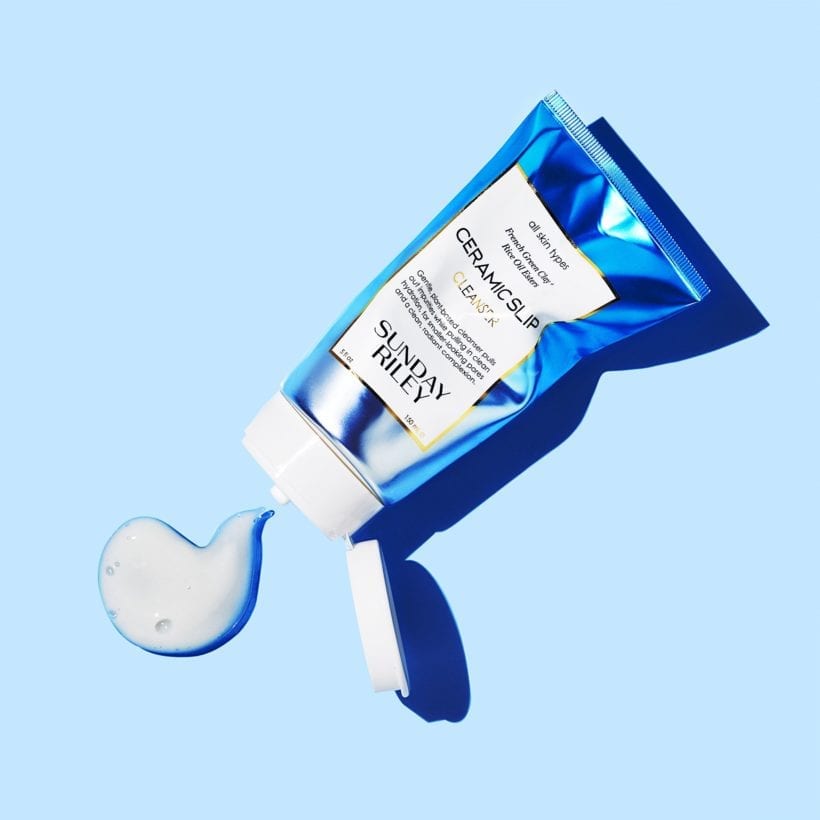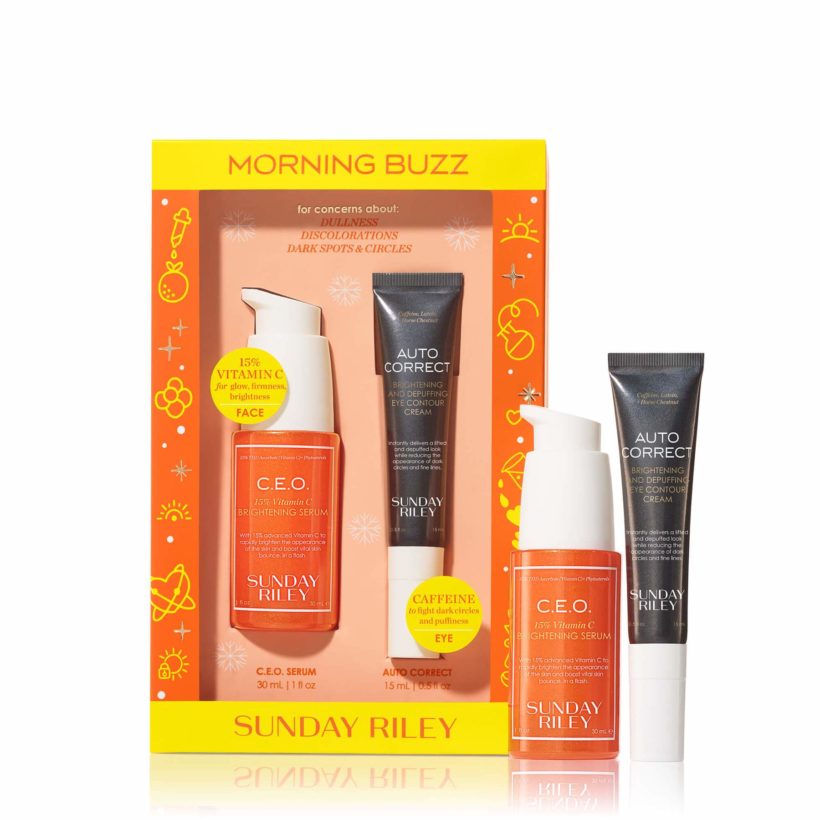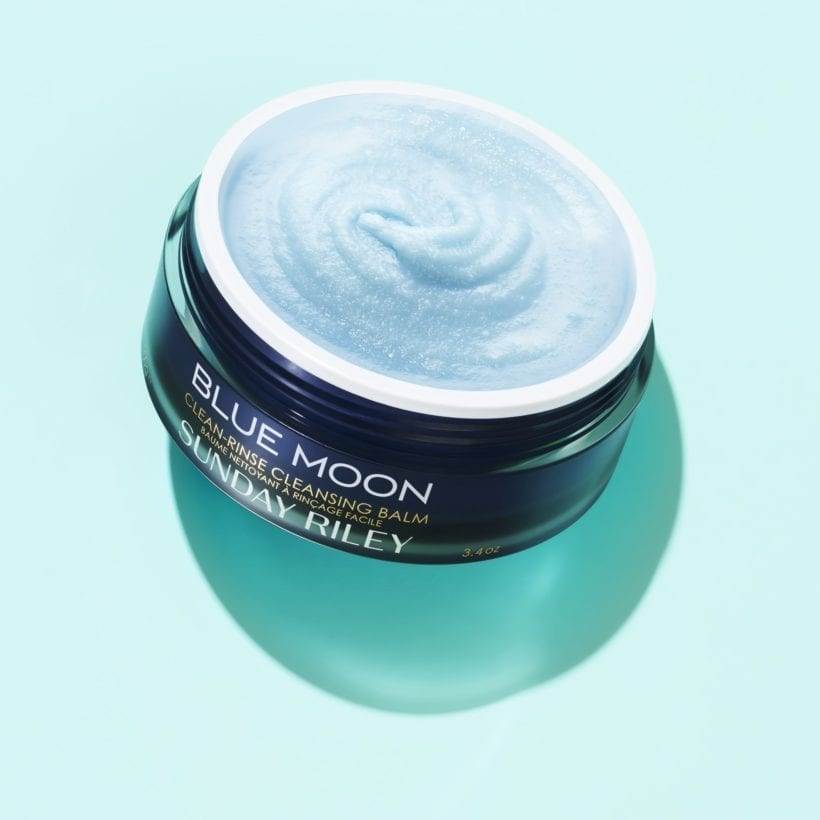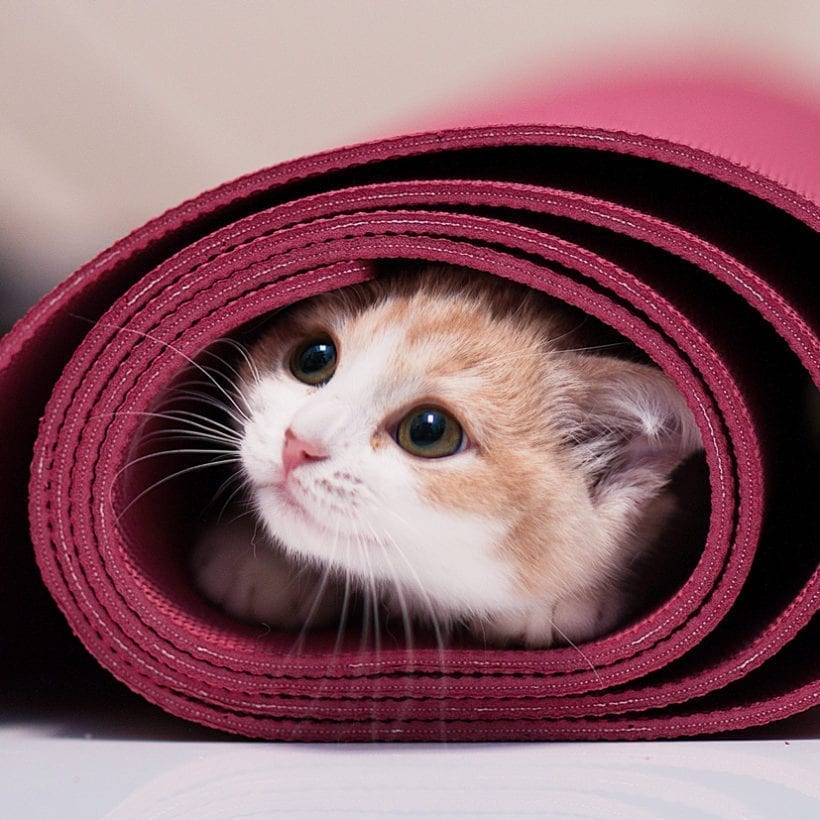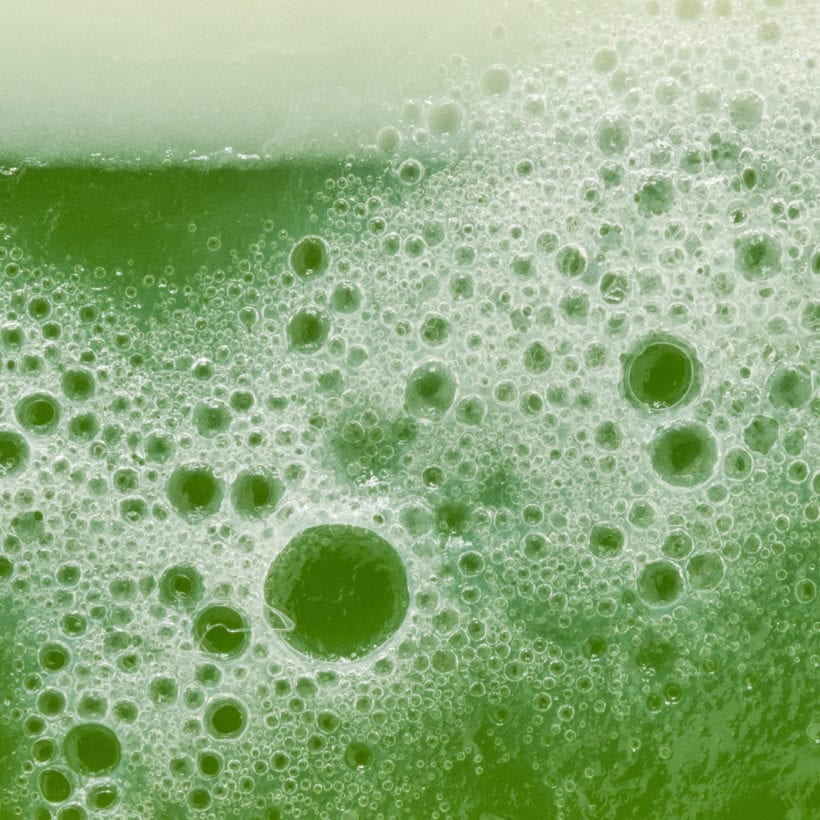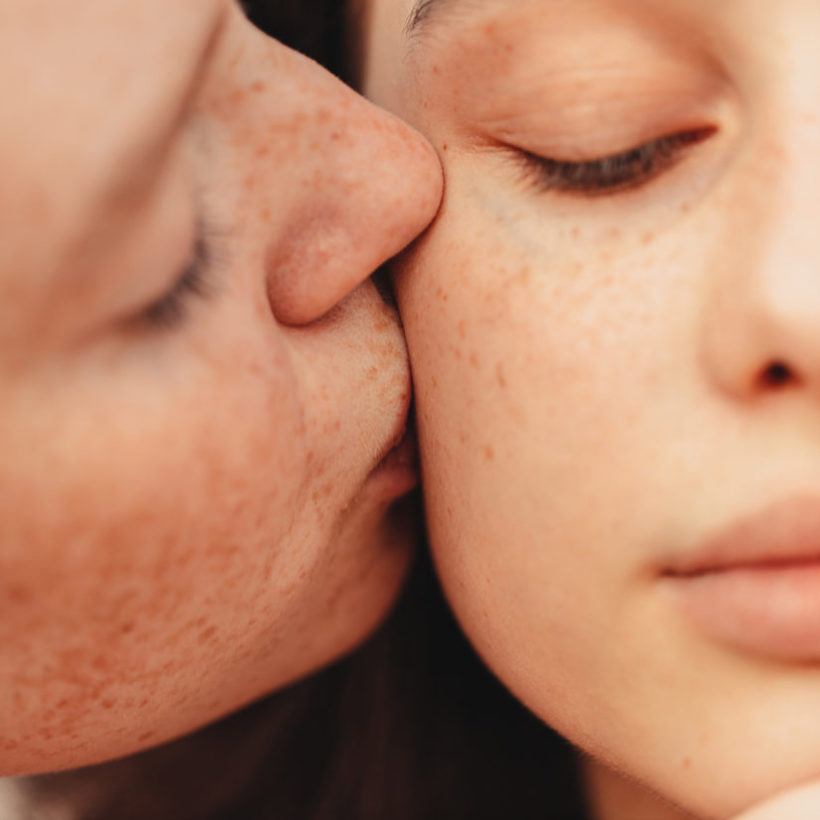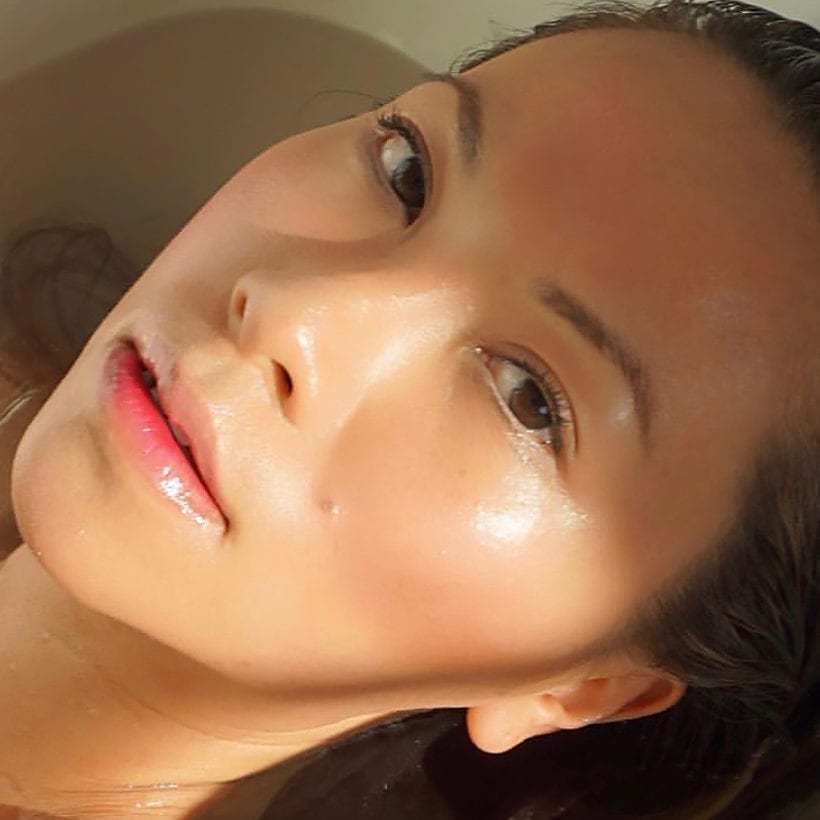We’ve been there: The end-of-day fatigue sets in as you plan to get in bed, watch just one show and then get up and wash your face. But then the bed is so warm and cozy and the show is so binge-worthy and the eyes…start…to…get…heavy. You use your last ounce of energy to close the iPad and drift off to the land of nod, forgetting all about the face washing. Is that really so bad? What happens to our skin while we sleep and when we don’t wash it every night? Read on to see what the experts have to say.
Your Skin While You Sleep
“When we sleep, our skin uses this time to recover and shed and regenerate its cells,” explains makeup artist Saffron Hughes of FalseEyelashes.co.uk. Every cell in the body produces waste that gets cleaned out while we sleep — think of it like the streets of a city with the trash bins being collected at night and in the morning: Tidyville. The toxic materials go out, then the cell can focus on its functions of renewal. Yes, beauty sleep really is a thing.
Sleeping in Face Makeup
Dr. Orit Markowitz, NYC board-certified dermatologist and founder of OptiSkin clinic, doesn’t hold back when she talks about wearing makeup to bed: “It’s gross to put substances on your face, walk around all day where dirt and grime collect on your face and then not take the time to wipe it off.” Why? For starters, “Leaving makeup on can lead to clogged pores that can cause breakouts,” she says.
Also, it can prevent that all-important nighttime cell renewal. “If there’s a lot of makeup and other products on your skin at night, it can get in the way of our skin’s DNA repair,” she says. Adds Hughes, “Free radicals from pollution, smog dust, etc., cling to your makeup, so by not removing your makeup before bed, you are allowing these unstable molecules to damage your skin. They can cause discoloration, wrinkles (the breakdown of collagen in your skin), and even loose skin due to damaged elastic fibers.”
Are all foundations equally bad for the skin when worn at night? “The more oil-based or thicker the foundation, the worse it is to leave on overnight because you are more likely to break out,” says Dr. Markowitz. “And if you have dry, sensitive skin and you’re wearing a foundation that has a lot of preservatives, your skin can get irritated if you don’t give it a chance to breathe.”

And it’s not just what’s happening on your face, says Hughes. When you wear makeup to bed, “You are allowing bacteria to build up on your pillowcase and bedding.” Changing and washing your pillowcase regularly is as important as washing your face.
Sleeping in Eye Makeup
There’s a whole extra set of issues that can come from sleeping in your eye makeup. For starters, Dr. Markowitz says, “I have seen patients who leave mascara and eyeliner on and they develop styes around the eyes that can be really difficult to treat — it can even lead to a mini surgery if not treated properly.” Hughes says that this is especially true for those that repeatedly sleep in makeup. “It can clog the tiny hair follicles and oil glands on your eyelids. If these areas become clogged, they cause a bacteria build-up which leads to inflammation, resulting in styes.”
How does eye makeup actually affect lash and brow hairs? Hughes explains that mascara — which is designed to make eyelashes stiff — “crunches lashes against the pillow, which can cause them to break.” She notes that waterproof mascara is even more stubborn than regular, meaning it coats the lashes even further and could potentially cause more damage than regular formulas. For brow hairs, which are “softer and more delicate than the hairs on your head,” pomades and pencils can wreak havoc. “They can seep into your eyebrow’s follicles and hinder the growth of your eyebrows or cause the hairs to fall out.”
Furthermore, you can develop issues with your actual eye, says Hughes. “Makeup particles can rub against your eye, which can lead to eye irritation, inflammation, and redness, as it can scratch against your cornea.”
The damage to your skin is cumulative. The more often you sleep in your makeup, the more you set yourself up for skin issues.
Rare vs. Frequent Offenses
As you might guess, skipping your nightly face cleansing a couple of times per year shouldn’t result in too much trauma for your face and eyes. However, “The damage to your skin is cumulative,” says Dr. Markowitz. “The more often you sleep in your makeup, the more you set yourself up for skin issues.” She adds that the more makeup you wear, the worse it is for your skin. And if you have offended? “Do your normal nighttime cleansing routine in the morning; make sure you take everything off your face before you begin putting creams and makeup on again.”
For Serial Offenders
Our experts’ advice is simple: Make a nightly skincare regimen part of your routine, the same way you would brushing your teeth or putting on pajamas. And if you tend to fall asleep reading or watching a show, make it a point to wash your face before getting into bed.
Also, don’t overcomplicate things. “If you struggle to find the time to remove your makeup and then wash your face, I recommend a facial cleanser that also removes makeup, such as a cleansing balm. This will cut down on time as you are removing your makeup as well as cleaning your face,” says Hughes. Try Sunday Riley Blue Moon Cleansing Balm, which can be left on for up to 15 minutes to gently work its magic on stubborn grime. A bonus of this balm: You use a warm cloth to wipe it off, so if you want to sit in bed while you wash your face, you can. Just put the balm and cloth on your bedside and cleanse at your leisure — but before those eyelids start…to…droop.
We only recommend products we have independently researched, tested, and loved. If you purchase a product found through our links, Sunday Edit may earn an affiliate commission.
